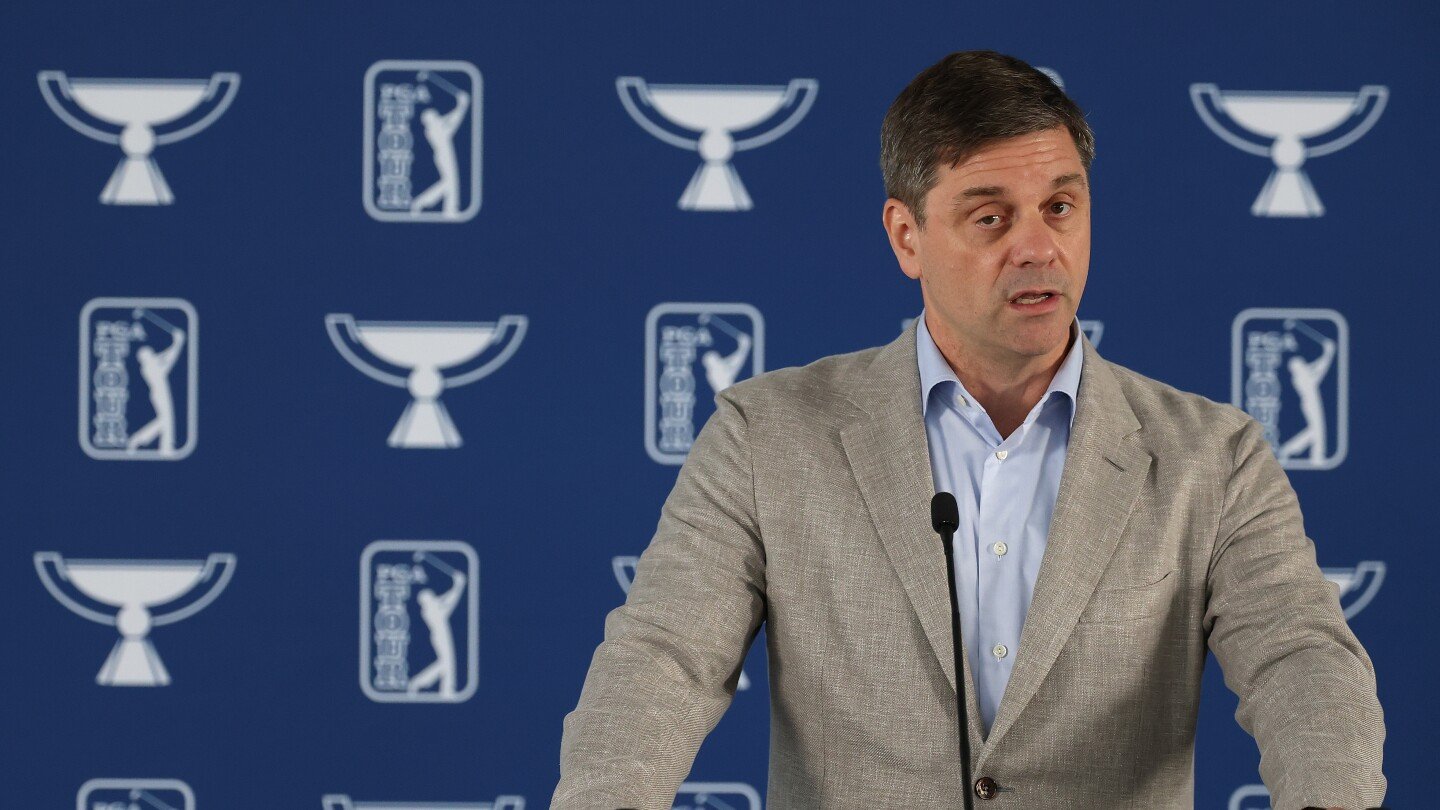
ATLANTA – It’s not likely that Brian Rolapp has an inspirational poster on a wall in his office with Newton’s first law of motion etched in oversized type — An Object in Motion Stays in Motion.
The PGA Tour’s new frontman has been on the job a nascent three weeks and doesn’t project the kind of leadership style that would rely on inspirational clichés to motivate, but the speed and breadth at which he’s moving suggests he’s at least familiar with Newton’s concept.
On Wednesday at East Lake, the circuit’s CEO announced the creation of something called the Future Competition Committee, an addition to the Tour’s bureaucracy that, during a different time and under a different commissioner, would have likely gone unnoticed by the average golf fan.
But these are different times and Rolapp is a vastly different leader.
“We’re going to focus on the evolution of our competitive model and the corresponding media products and sponsorship elements and model of the entire sport. The goal is not incremental change. The goal is significant change,” said Rolapp of the new committee, which has been tagged to take a “holistic relook of how we compete on the Tour,” with a focus on both the regular season, playoffs and off-season.
Since Rolapp was unveiled as Jay Monahan’s successor, a few talking points have emerged, including, and perhaps most interesting, his unabashed embrace of being a golf outsider. From the outset, he’s made it clear he wasn’t hired for his golf acumen; he was hired to innovate and lead, and that leadership has been on display the last few weeks as he’s canvased his ranks in search of insight if not consensus.
“Well, it was clear he doesn’t know anything about golf,” said one player who had recently spent nearly an hour talking with Rolapp.
That potential problem is actually seen by many as an asset as the Tour begins its journey to bigger and better.
“I was able to spend a good 90 minutes with him just talking through everything to do with the Tour, the whole thing over the past three or four years and what the future looks like,” Rory McIlroy said. “I like him. I like him a lot.
“I like that he doesn’t come from golf. I like that he doesn’t have any preconceived ideas of what golf should look like or what the Tour should look like. I think he’s going to bring a fresh perspective to everything, and I think he wants to move pretty quick, so I’m excited.”
Rolapp estimated he had met with “over 20” players the last few weeks but his reach seemed much wider.
“I thought his initiative was really cool of calling some guys on the Tour. We probably talked for 45 minutes, and I didn’t know how long we were going to talk. He had some great questions and kind of opened the floor to me,” Harris English said. “I’ve been out here 14 years. I’ve seen a lot of changes out here, and kind of my thoughts on what’s good, what’s bad, what needs to be changed.”
Before the accolades back Rolapp into a “players’ commissioner” corner, know that the new chief executive appears fully prepared for a complete and calculated overhaul of every aspect of the Tour at a speed professional golf is not familiar.
Rolapp wants PGA Tour to be aggressive meritocracy
PGA Tour CEO Brian Rolapp joins Eamon Lynch to discuss the introduction of the Future Competition Committee, the schedule priorities moving forward, negotiations with PIF and more.
“We’re going to focus on the evolution of our competitive model and the corresponding media products and sponsorship elements and model of the entire sport. The goal is not incremental change. The goal is significant change,” Rolapp said.
That change will likely not be universally embraced, particularly by players. As one player predicted, “[Rolapp] is going to break some eggs.”
“People don’t like change,” the player explained, “and change is coming.”
Atop that list of impending change will be one of Rolapp’s bullet points for the new competition committee — scarcity. According to the Tour, scarcity means “increase fan engagement by ensuring top players compete together more often.” To others, scarcity means less is more.
The Tour announced next year’s 38-event schedule on Tuesday and it was impossible not to imagine that lineup being something closer to 25 events that focus on the best players at the best venues during the best time of year.
“I said when I took the job that I would take it with a clean sheet of paper, and that is still true,” Rolapp said. “Now we’re going to start turning that blank sheet of paper into action with an idea to aggressively build on the foundation that we have.”
Newton’s first law of motion requires a physical act to begin the process, and Wednesday’s rollout at East Lake was a strong push.

